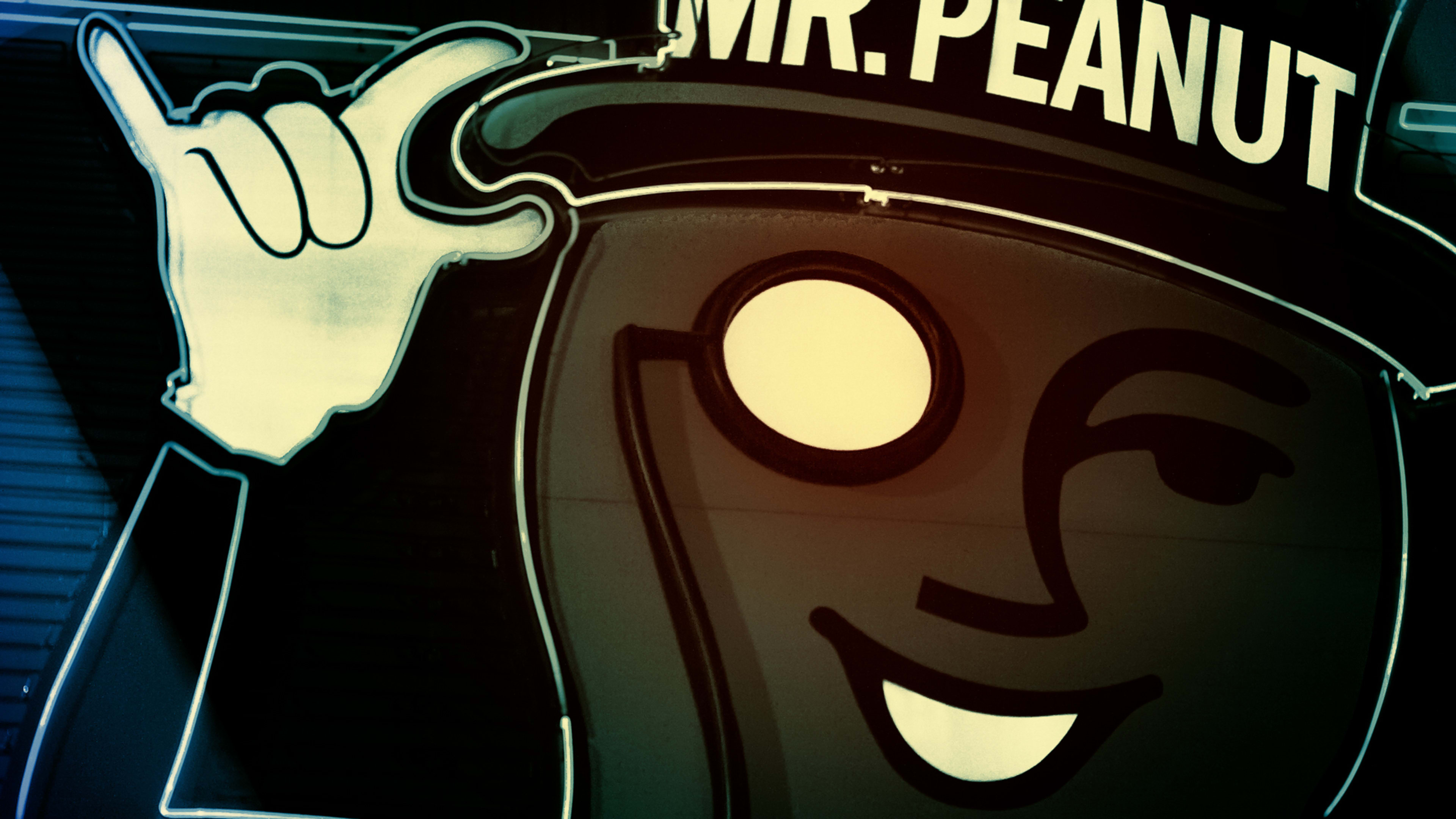It’s a funny thing, Brand Twitter. That amorphous, alt-social universe—where corporations and their mascots parade themselves as actual people in order to forge what marketers call “emotional connections”—began as a clever novelty (LOL, look, my favorite cereal just made a joke about this specific pop-culture happening!) but has evolved into the 140-character version of the old-school, 30-second TV ad. At its worst, it’s an interruptive brand message amid the content you’re actually on the platform to see. At its best, much like a great Nike ad or a funny beer commercial, a branded tweet is smart, funny, or clever enough to almost make you forget they’re just here to sell you something.
One of the biggest differences, however, between a brand tweet and a TV ad is you can yell back on Twitter, and the whole world will (theoretically) hear you.
That’s what Vice writer Luke Taylor did. He yelled. He yelled death threats at the Mr. Peanut Twitter account for about four months in what appears to be either an attempt at cultural commentary on the dangers of humanizing corporations, or an attempt to land a comedy writing gig. Either way, his essay about his experience headlined “I Was Banned From Twitter For Threatening To Kill Mr. Peanut” sparked a debate around whether the people behind Brand Twitter should be treated as humans doing a job or as fictional mascots.
https://twitter.com/ParkerMolloy/status/1148339332698312707
https://twitter.com/willystaley/status/1148339578820075521
The job history of “Social Media Manager” is not a long one. Depending on the brand, the job description could range from doing customer service to creative writing to everything in between. On one side of the Mr. Peanut Death Threat Debate™ are those that see the real human behind the fictional character’s account as a 21st-century customer-service rep, and tossing death threats at them is the social media equivalent to screaming obscenities at a call-center employee who just happens to answer the phone on the day you’ve chosen to aim some seething rage at your cable company or least favorite airline. The impact of call-center abuse is well-documented (anxiety, depression, stress), and the United Steelworkers Union actually created an ad campaign around it in 2016.
On the other side of the Mr. Peanut Death Threat Debate™ is the idea that, unlike call-center employees, a Brand Twitter account is actively interrupting our experience on the platform. Trying trying trying to get our attention. So if that’s the job description, shouldn’t they expect some backlash? Perhaps, but are insults or worse, particularly those lacking any actual wit, necessary? Probably not.
Maybe the people behind Brand Twitter personas are more like actors, and as such shouldn’t be held personally responsible for your feelings about that character. Again, death threats aren’t really fun or cool there, either. Back in 2013, Breaking Bad‘s Anna Gunn, who played Skyler White, wrote a whole New York Times opinion piece about the online feedback she received from people conflating her and her character. Stuff like, “Could somebody tell me where I can find Anna Gunn so I can kill her?”
Now, does replacing Anna Gunn (a real person) with Mr. Peanut (a fictional mascot) make that any less of a threat? Of course it does, but it’s still pretty weird.
If there is a lesson to be learned here, it’s simply a reminder that when you’re dealing with interruptive advertising of any stripe, brands and marketers need to expect and be prepared to deal with responses like Taylor’s.
Taylor’s funniest joke in all of this was choosing to tell the tale of his “tireless fight against corporate America” on Vice, a company with its own internal ad agency and whose onetime $5.7-billion valuation was built on the back of its multimedia promise to deliver young, cool eyeballs to as many brands as possible.
Recognize your brand’s excellence by applying to this year’s Brands That Matter Awards before the early-rate deadline, May 3.
